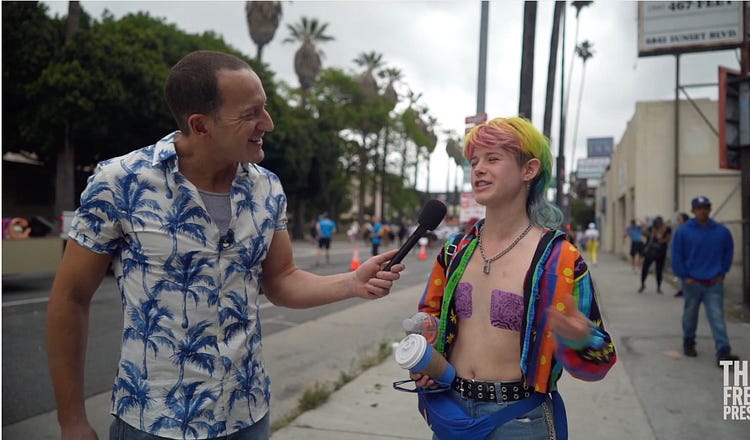Can a Boring Old ‘G’ Still Hang with the LBTQIAs?

Ben Kawaller at L.A. Pride in 2023.
Twenty years ago, I was a rare gay teen at Pride. Now, I’m not even sure I count as queer.
681
My first Pride parade was around the year 2000, when I was 15. My parents and I marched with PFLAG—Parents and Friends of Lesbians and Gays—a now quaint-sounding organization my folks joined after I came out, to help my mother accept the idea that her son would die of AIDS.
I was hoping, of course, that I would meet some boy at the parade. Sadly, no suc…
Continue Reading The Free Press
To support our journalism, and unlock all of our investigative stories and provocative commentary about the world as it actually is, subscribe below.
$8.33/month
Billed as $100 yearly
$10/month
Billed as $10 monthly
Already have an account?
Sign In

